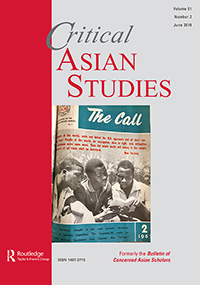Resource information
Facing land grabs and eviction in the name of development, women worldwide increasingly join land rights struggles despite often deeply engrained images of female domesticity and conventional gender norms. Yet, the literature on female agency in the context of land struggles has remained largely underexplored. Based on extensive ethnographic fieldwork, my findings suggest that land rights activism in Cambodia has undergone a gendered re-framing process. Reasoning that women use non-violent means of contestation and are less prone to violence from security personnel, non-governmental organizations (NGOs) push women affected by land grabs and eviction to the frontline of protests. Moreover, female activists are encouraged to publicly display emotions, such as the experienced pain behavior that sharply contrasts with Cambodian norms of feminine modesty. I critically question this women-to-the-front strategy and, drawing on Sara Ahmed’s politics of emotions approach, show the adverse risks for female activists. Furthermore, I demonstrate that the instrumentalization of female bodies and emotions in land rights protests perpetuate gender disparities instead of strengthening female agency in the Cambodian society and opening up political space for women.


